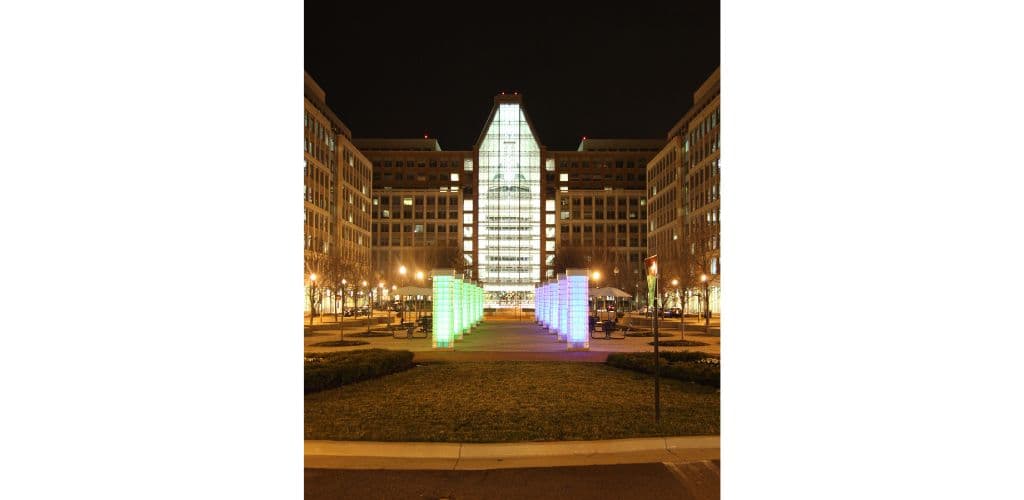President Donald Trump has submitted the nomination of John Squires to be Under Secretary of Commerce for Intellectual Property and Director of the US Patent and Trademark Office (USPTO) to the US Senate Committee on the Judiciary.
As of the date of this blog, a confirmation hearing has not yet been scheduled.
Coke Morgan Stewart became acting head of the USPTO on January 20, 2025, the day of Trump’s inauguration. Former director Kathi Vidal resigned in December.
Squires is the Chair of the Emerging Companies and IP practice at the Dilworth Paxson law firm, with his primary office in New York City.
According to his law firm bio, Squires
is globally recognized as one of the world’s leading attorneys in advanced technologies and intellectual property, including AI, Blockchain, Fintech/Regtech Cybersecurity, and Risk. He has extensive experience in all aspects of IP and emerging companies, including IP transactions, licensing, patent-asset creation and acquisition, commercial litigation, regulatory, and risk management matters.
He has a BS in Chemistry from Bucknell University and a JD from the University of Pittsburgh School of Law, where he was on the law review.
His history hints at positions he might take as director of the USPTO:
- He was the co-author of an amicus brief – in support of neither party — in the 2008 Federal Circuit case of Bilski v. Kappos. He advocated for significantly broader patent eligibility standards, especially for patents in the fields of finance and banking.
His views appear to align with the Patent Eligibility Restoration Act, which is supported by the conversative/libertarian Federalist Society.
- He testified before the Senate Judiciary Committee in 2007 in favor of post-grant proceedings for challenging patents at the USPTO. The resulting legislation established the inter partes review system and the Patent Trial and Appeal Board (PTAB).
- In a recent LinkedIn post, he asserted that “the patent pendency crises needs immediate attention,” saying,
Especially for start-ups and emerging companies, elongated pendencies can be a death sentence. Not to mention for traditional industry applicant’s, further dislocate ‘patent economies’ from the real economic goods, services and technologies they cover.
If left unaddressed, no doubt the USPTO’s global standing will suffer (let alone the applicants) and a great economic engine force will wither.
If approved, Squires would serve under US Secretary of Commerce Howard Lutnick, who was confirmed by the U.S. Senate on February 18.
As Reuters reported,
Lutnick, the billionaire chairman and CEO of Wall Street firm Cantor Fitzgerald, is a named inventor on hundreds of U.S. patents. Lutnick pledged during his Senate confirmation hearing to address an “unacceptable” backlog of patent applications and the alleged abuse of the U.S. patent system by Chinese applicants.
In other news, the USPTO has withdrawn an artificial intelligence strategy document published on January 14, just before the start of the Trump administration.
Acting Director Stewart said the strategy was removed because it was “driven in part by Biden executive orders” that have been rescinded by the Trump administration.
On January 23, the Trump administration issued an executive order on Removing Barriers to American Leadership In Artificial Intelligence.
This new EO focuses on “America’s global AI dominance” rather than the Biden administration’s focus on “safe, secure, and trustworthy [AI] development.”
As Wired reports, under the Trump administration,
The National Institute of Standards and Technology (NIST) has issued new instructions to scientists that partner with the US Artificial Intelligence Safety Institute (AISI) that eliminate mention of “AI safety,” “responsible AI,” and “AI fairness” in the skills it expects of members and introduces a request to prioritize “reducing ideological bias, to enable human flourishing and economic competitiveness.”
As Wired also reported,
Speaking at the AI Action Summit in Paris in February, vice president JD Vance said that the US government will prioritize American competitiveness in the race to develop and benefit from AI. “The AI future is not going to be won by hand-wringing about safety,” Vance told attendees from around the world. The US delegation to the event did not include anyone from the AI Safety Institute.
Just like the haiku above, we like to keep our posts short and sweet. Hopefully, you found this bite-sized information helpful. If you would like more information, please do not hesitate to contact us here: https://aeonlaw.com/contact-us/.


